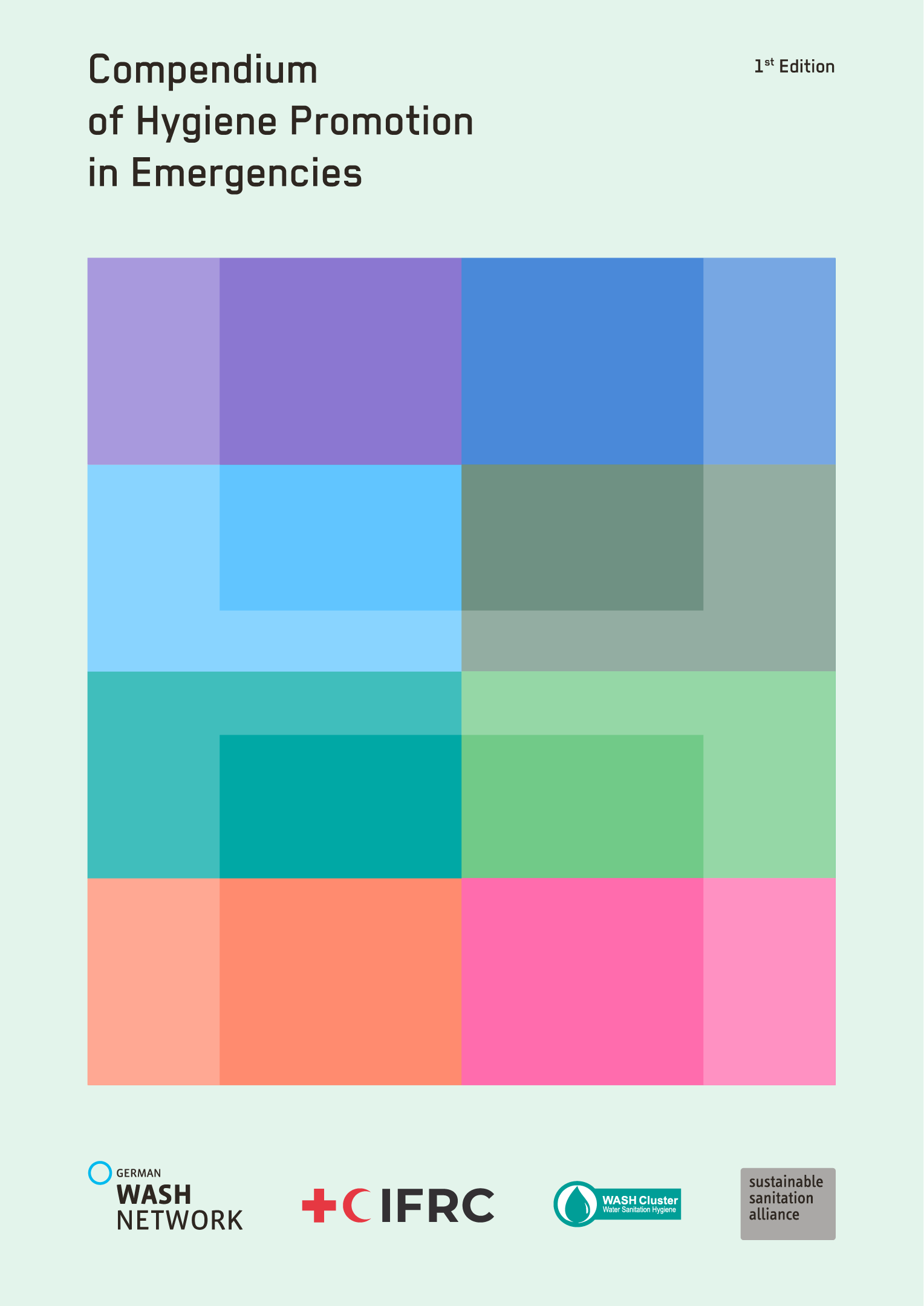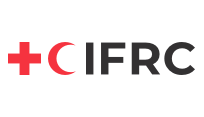Reliable Planning of Hygiene Promotion Interventions in Emergencies
The Hygiene Promotion in Emergencies Compendium is a comprehensive compilation of the most relevant and sector-reviewed hygiene promotion components, tools, methods and approaches. It draws on the latest initiatives, materials and evidence, disaggregating hygiene promotion into its functional components, clarifying terminology and providing guidance on the most appropriate solutions in a given context. It is primarily a capacity strengthening tool that provides a systematic starting point to access relevant summarised information and supports hygiene promotion planning, implementation and decision making.

Decision Support Tool
The Compendium is primarily a capacity strengthening tool and resource that supports planning, implementation and decision making for specific hygiene promotion interventions. It provides a systematic starting point to access relevant summarised information on hygiene promotion with details and links to additional practical guidance as well as publications, case studies, videos and training materials where available. It facilitates informed decision making by providing the necessary framework to ensure that key hygiene promotion components are considered and helps to identify tools and frameworks appropriate for a given context.
Real-Time Configuration and Sharing
The Compendium allows for a targeted and context-specific filtering of tools and approaches. All individual configurations made when using the available filter options can be easily shared with interested colleagues and other WASH practitioners. All hygiene promotion components, tools and frameworks can be pre-selected and shared or further discussed with an online-community of WASH experts and practitioners.
From Relief to Development
The Compendium addresses a broad spectrum of scenarios that humanitarian WASH practitioners may encounter when planning and implementing hygiene promotion interventions. Humanitarian WASH interventions primarily focus on immediate life-saving measures and public health protection. However, the humanitarian community is increasingly confronted with longer-term protracted crises that stretch beyond an emergency response. Humanitarian WASH professionals may work in both urban settings and displacement camp contexts. They need to address the WASH needs of refugees, internally displaced people and host communities. The Compendium addresses this complex reality by including hygiene promotion components, tools and frameworks that can be adapted for use in a variety of scenarios, contributing to complementarity between the humanitarian and development realms.
Target Audience
The Compendium mainly targets humanitarian staff, local first responders, engineers, planners, hygiene promoters, communications and community engagement professionals, government representatives, academic institutions, capacity strengthening agencies and other WASH professionals involved in humanitarian response, preparedness, stabilisation and recovery activities.
Open-Source Tool
All provided information and graphics are open-source and free of charge. Permission is granted for sharing and reproduction, in whole or part, for education, scientific, humanitarian or development related purposes except those involving commercial sale, and provided that full citation of the source is made.
Collaboration
The development of the Compendium has been a collaborative effort of Global WASH Cluster partners, coordinated by the German WASH Network and with contributions and support from a multitude of international WASH experts, organisations and institutions. It will be constantly updated and users are encouraged to provide direct feedback in order to ensure the quality and to further improve the platform.
Why Hygiene Promotion?
Hygiene promotion that supports behaviours, community engagement and actions to reduce the risk of disease is fundamental to a successful WASH response. It is increasingly recognised that hygiene promotion is well placed to respond to broader public health programming and to the outbreak of diseases, such as Ebola or COVID-19, where a comprehensive emergency WASH intervention may not be required. Some of the key reasons why hygiene promotion must be included in a WASH or outbreak response are:
- Hygiene promotion aims to ensure the effective, sustained and optimal use of WASH facilities by all users. If water, toilets or handwashing facilities are provided without consideration of the context or users, they may not be used optimally by all members of the community. Nor will they be maintained.
- Hygiene promotion aims to involve people in decisions about the WASH or outbreak response, such as the design, siting and management of facilities or how best to communicate with a community. It enables affected communities to participate in the programme.
- Hygiene promotion can identify different needs and concerns within the affected population, so that the programme responds to those needs and helps to increase equitable access to WASH.
- Hygiene promotion provides a mechanism to actively listen and respond to feedback from different community members. It can increase the accountability of the response. There is always an opportunity for dialogue and discussion with those affected – even in the acute phase of an emergency when it can be overlooked.
- Hygiene promotion carries out formative assessments to understand and respond to the social and behavioural determinants that affect people’s health and hygiene in a specific context.
- Hygiene promotion’s emphasis on community engagement and participation can link humanitarian work to longer-term development.
- Hygiene promotion may be one of the most cost-effective ways of improving public health outcomes.






